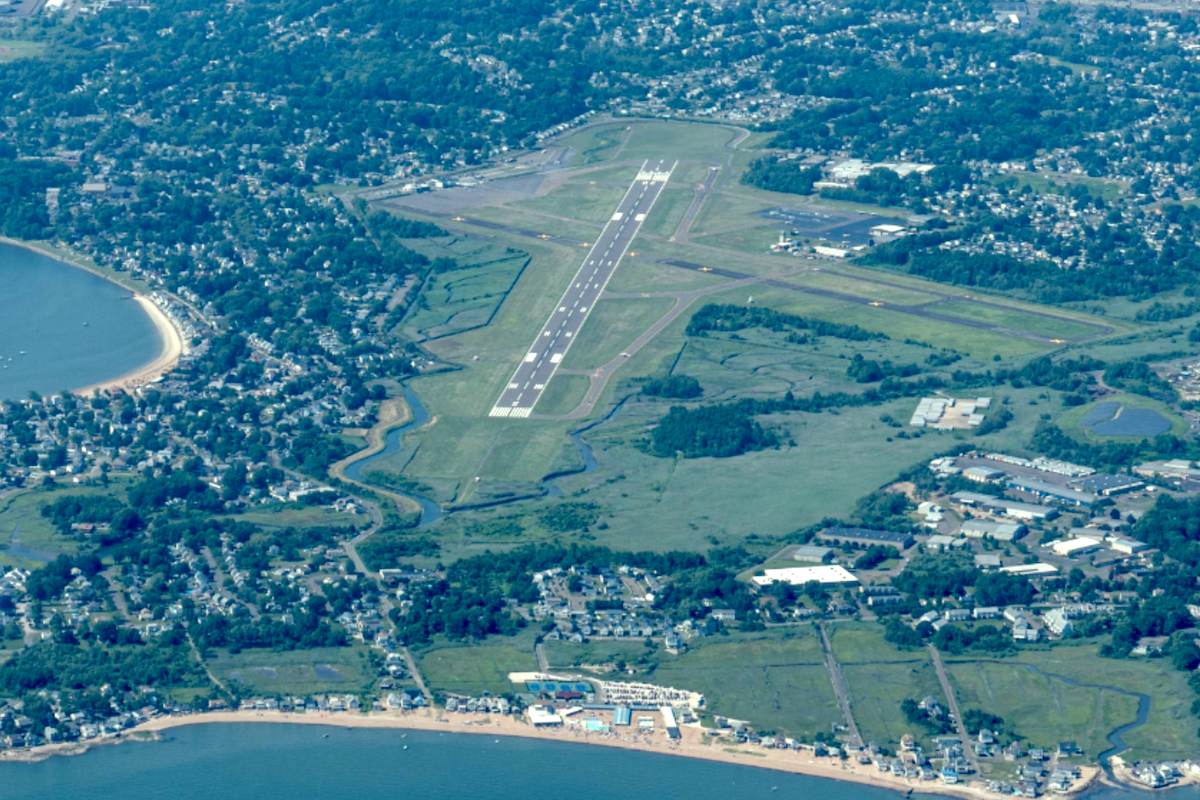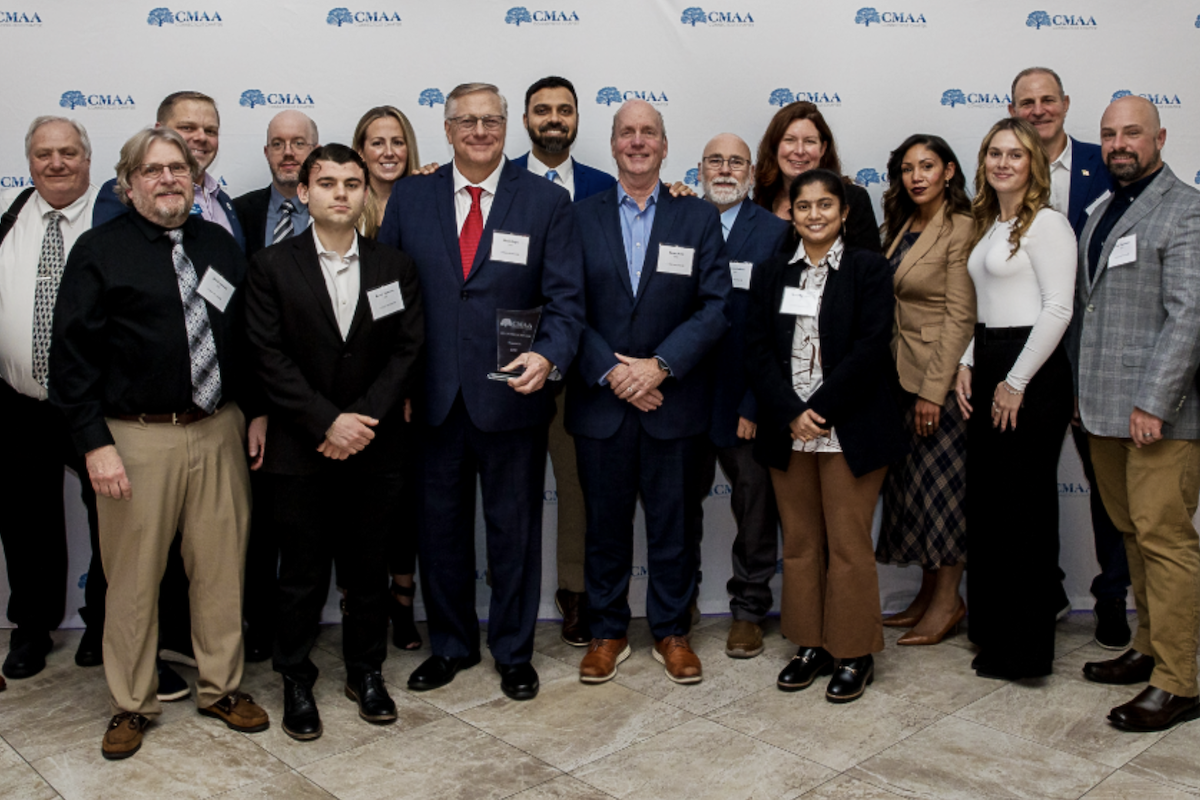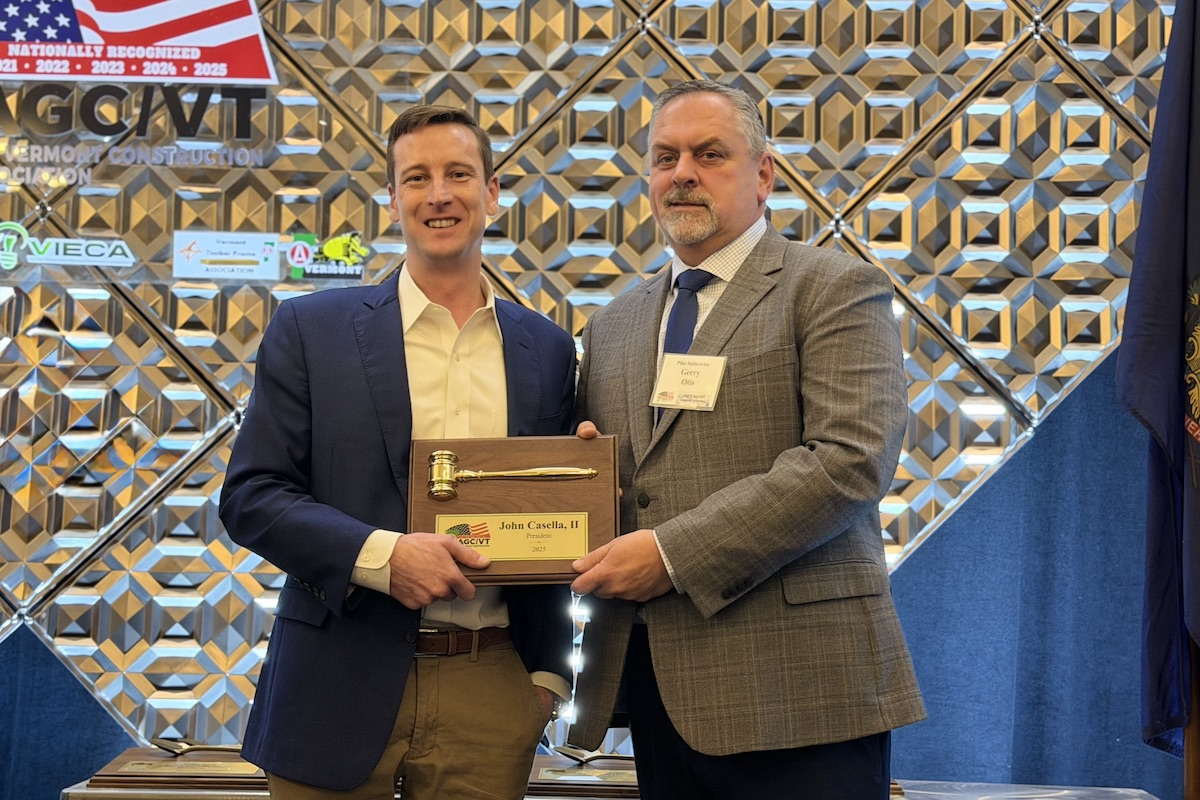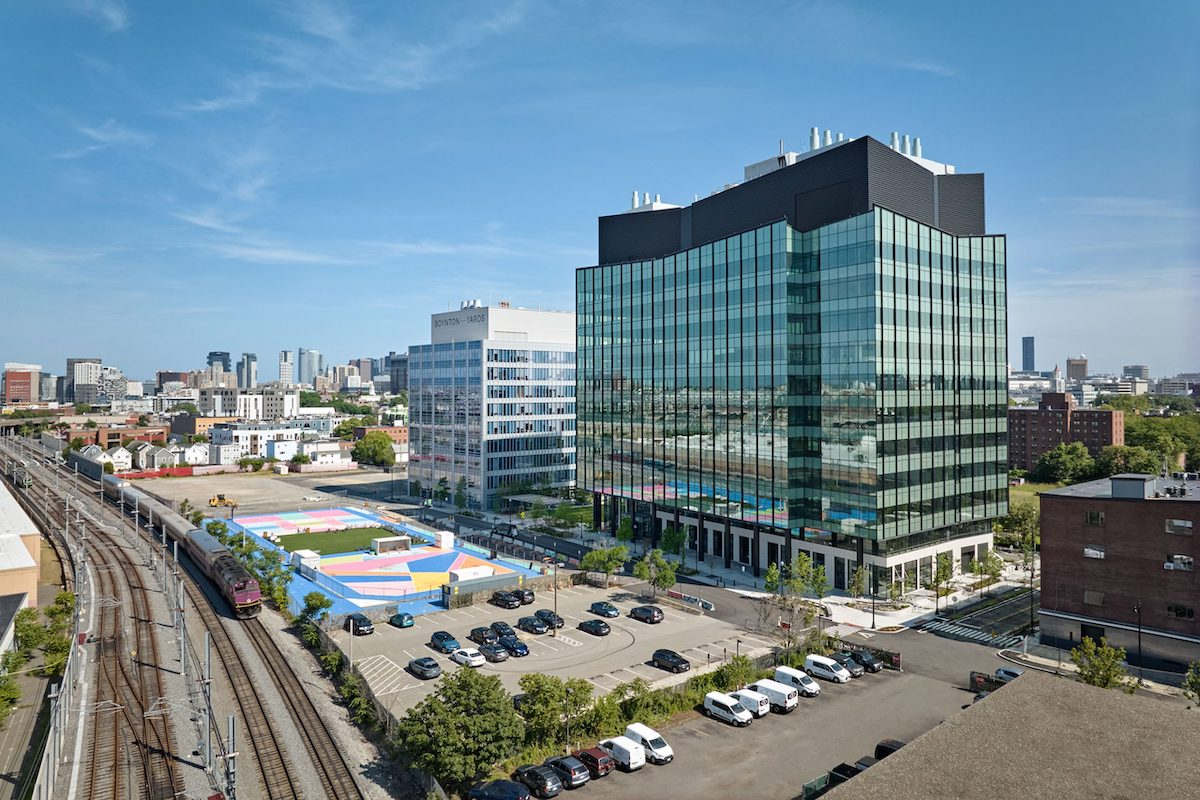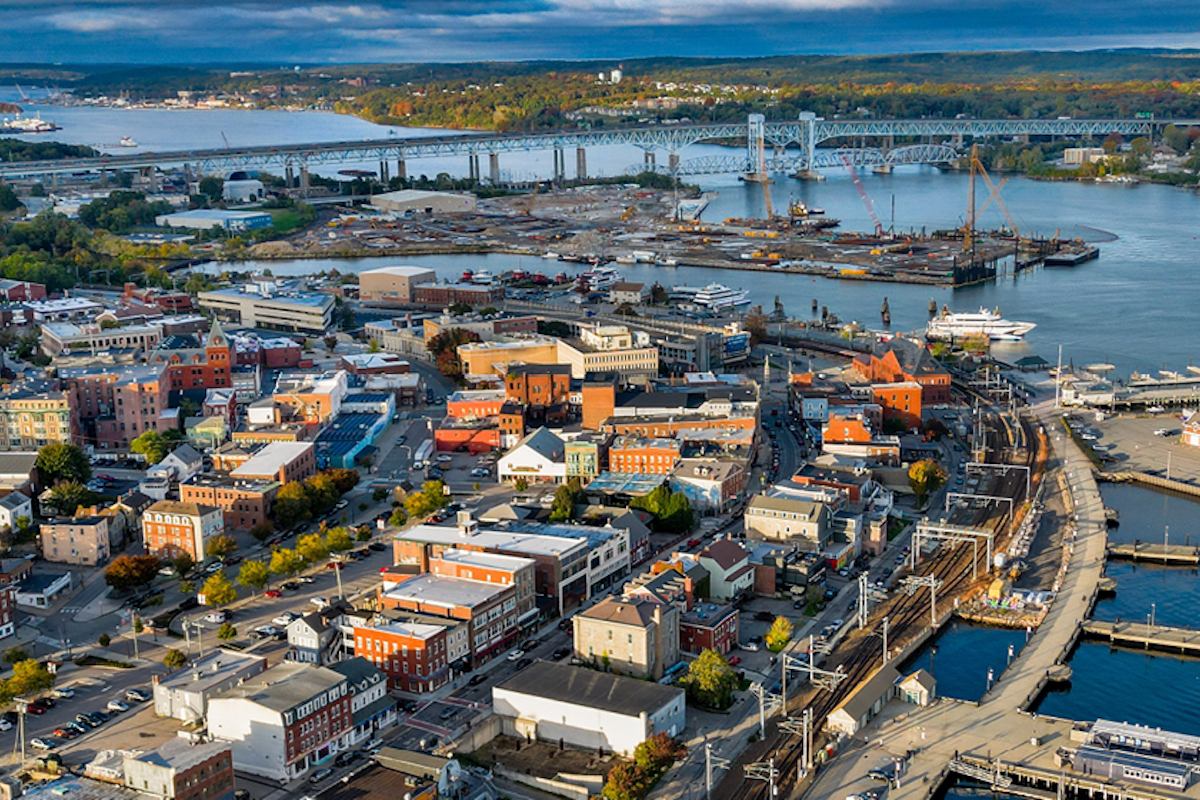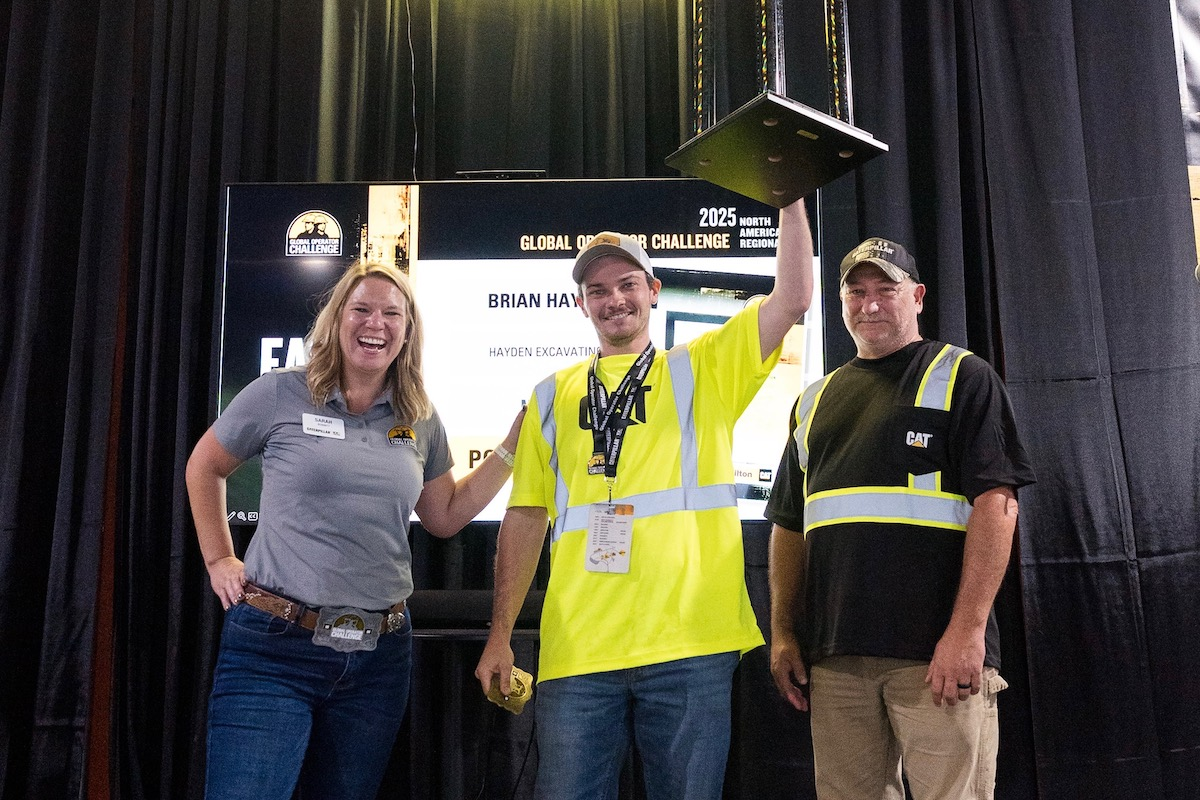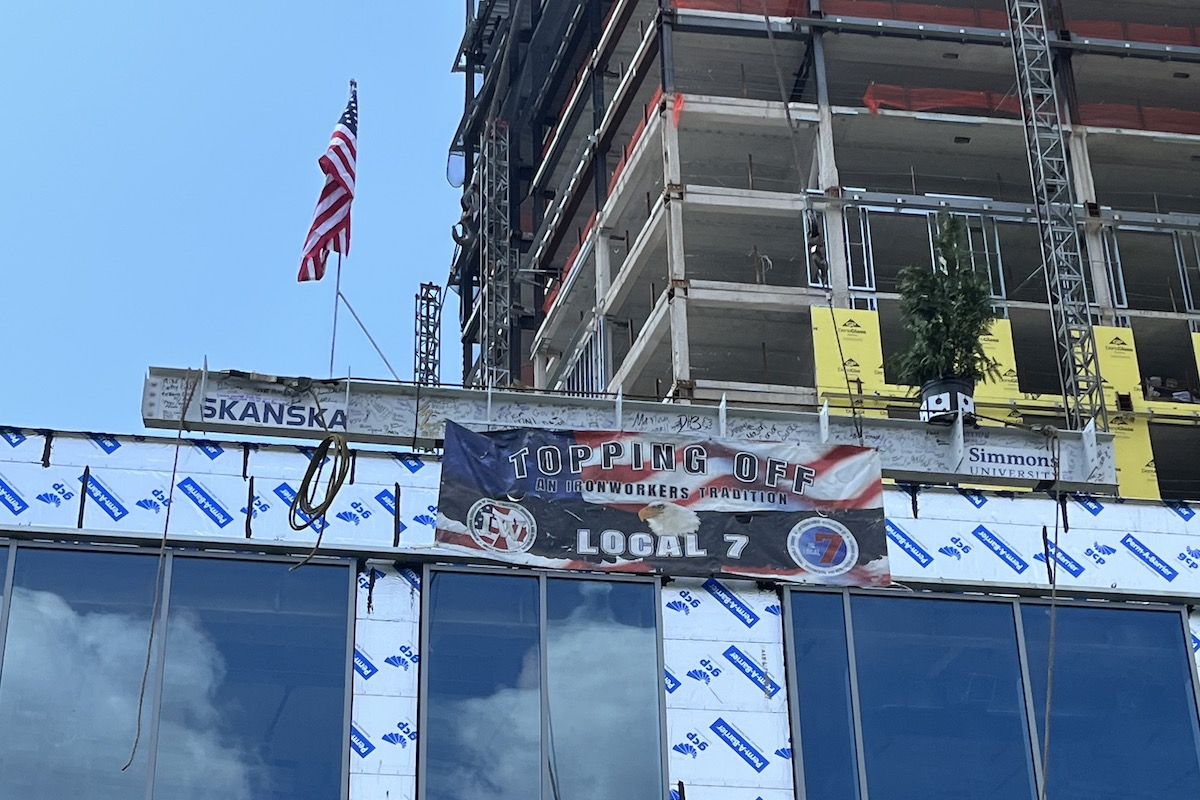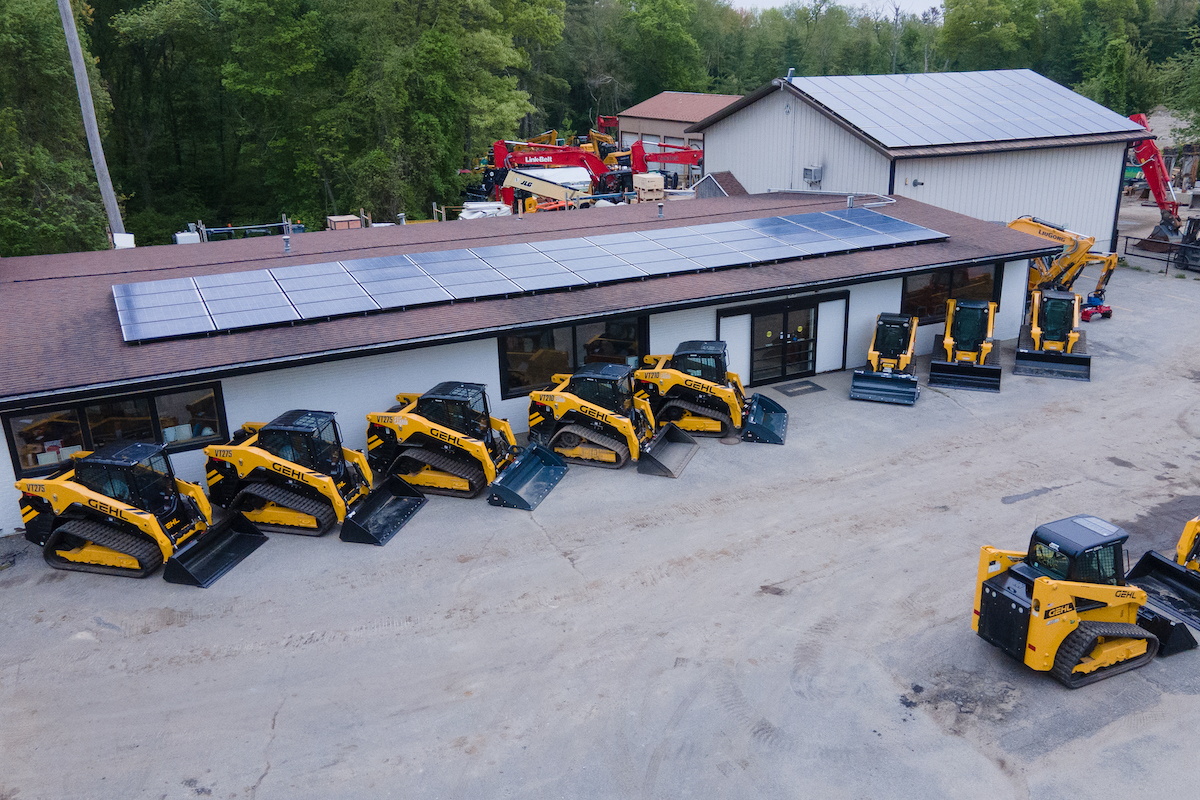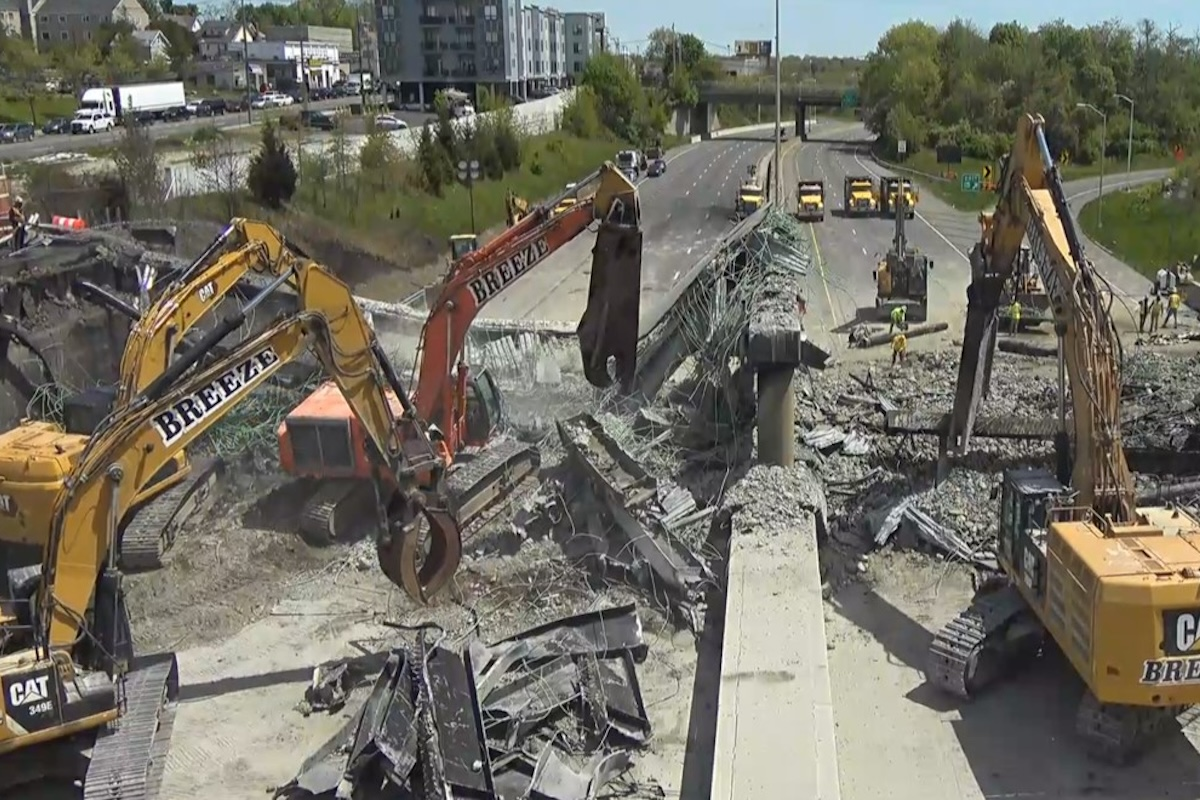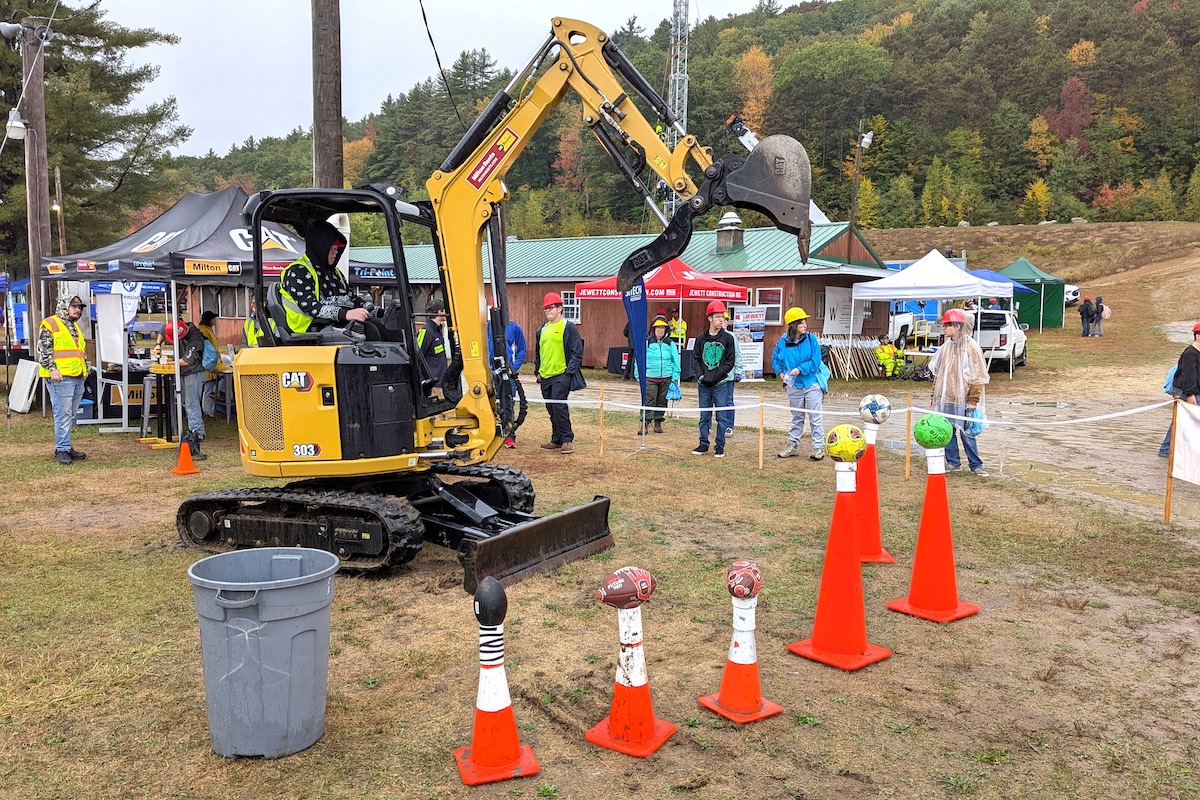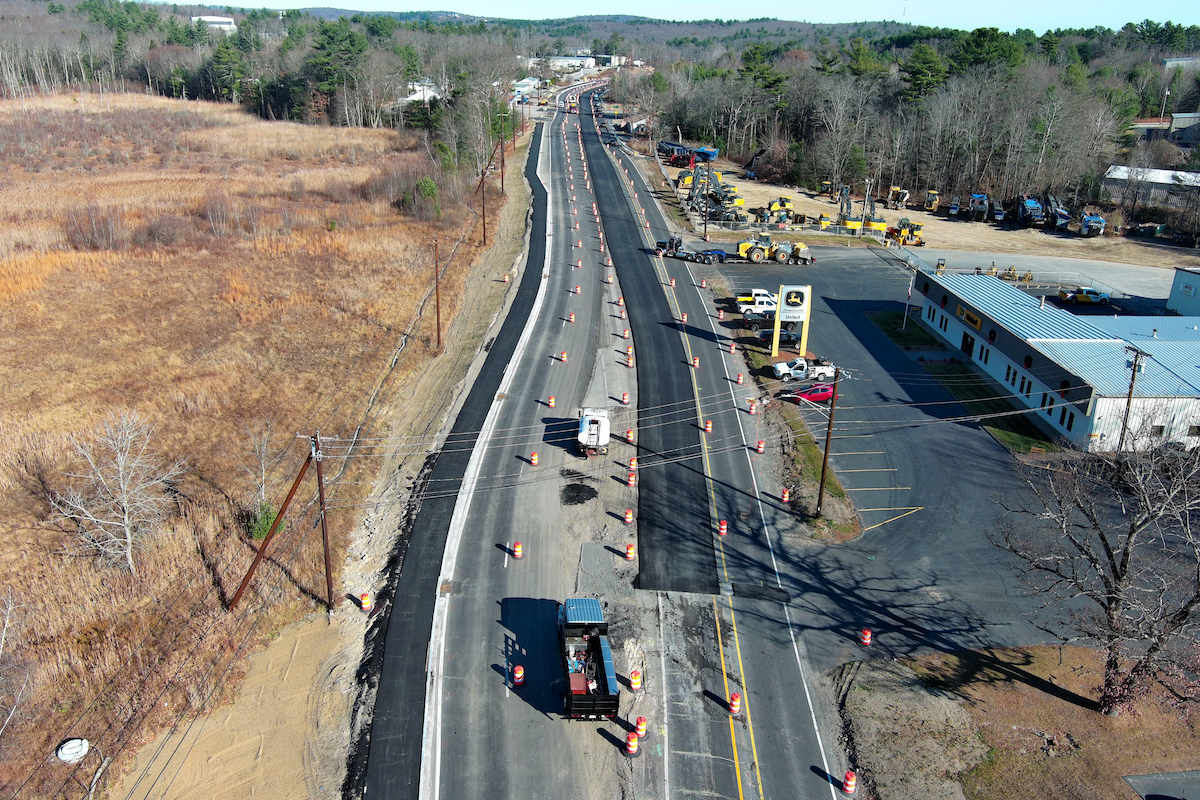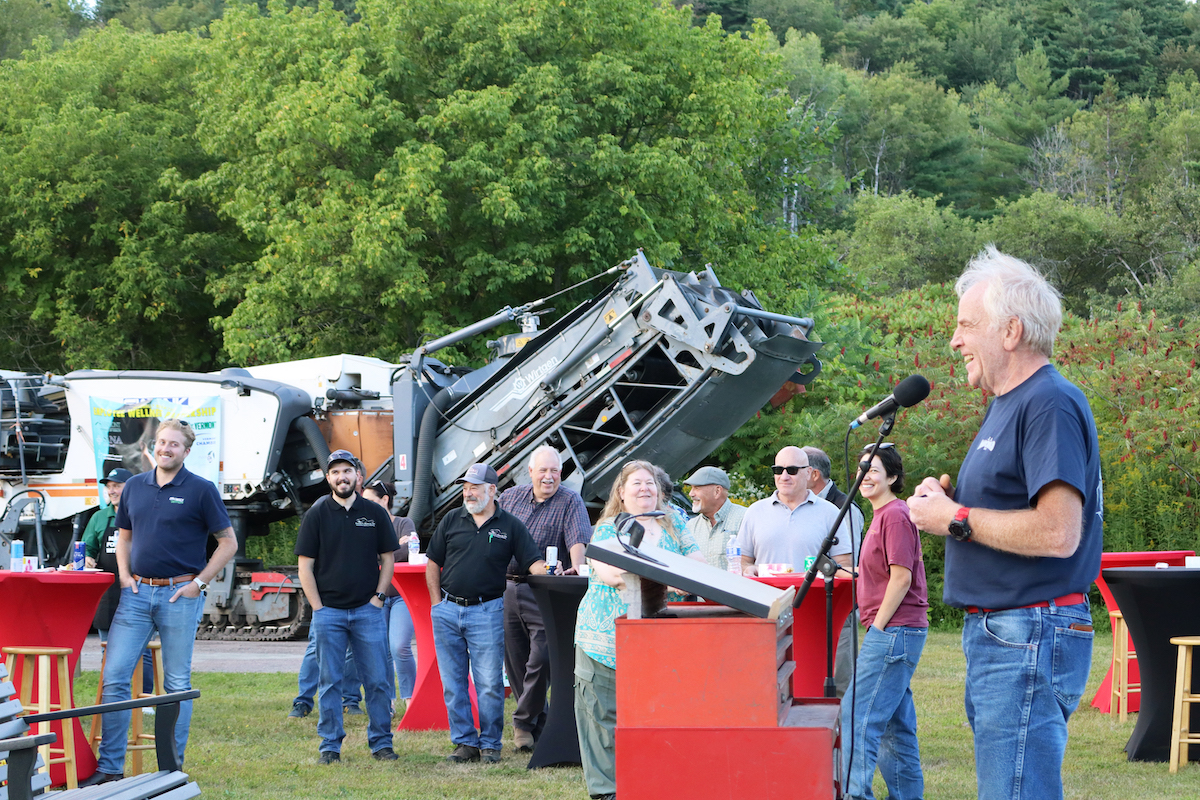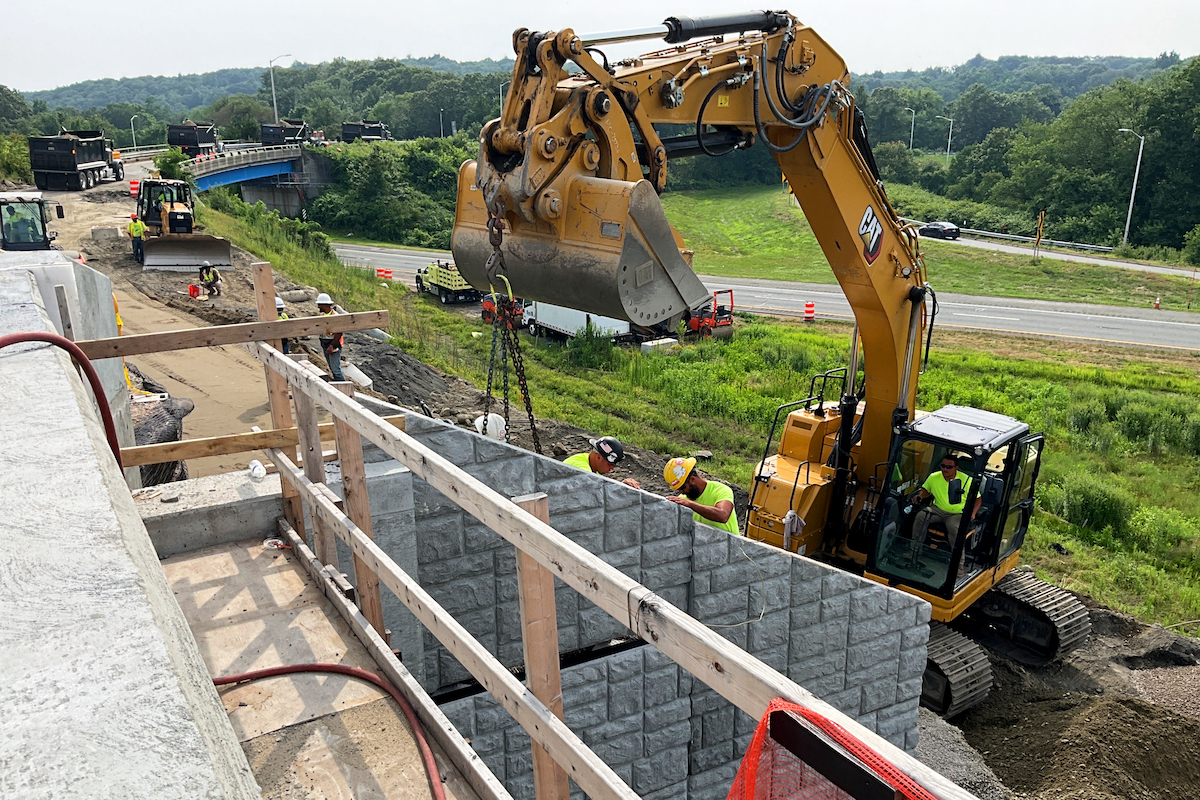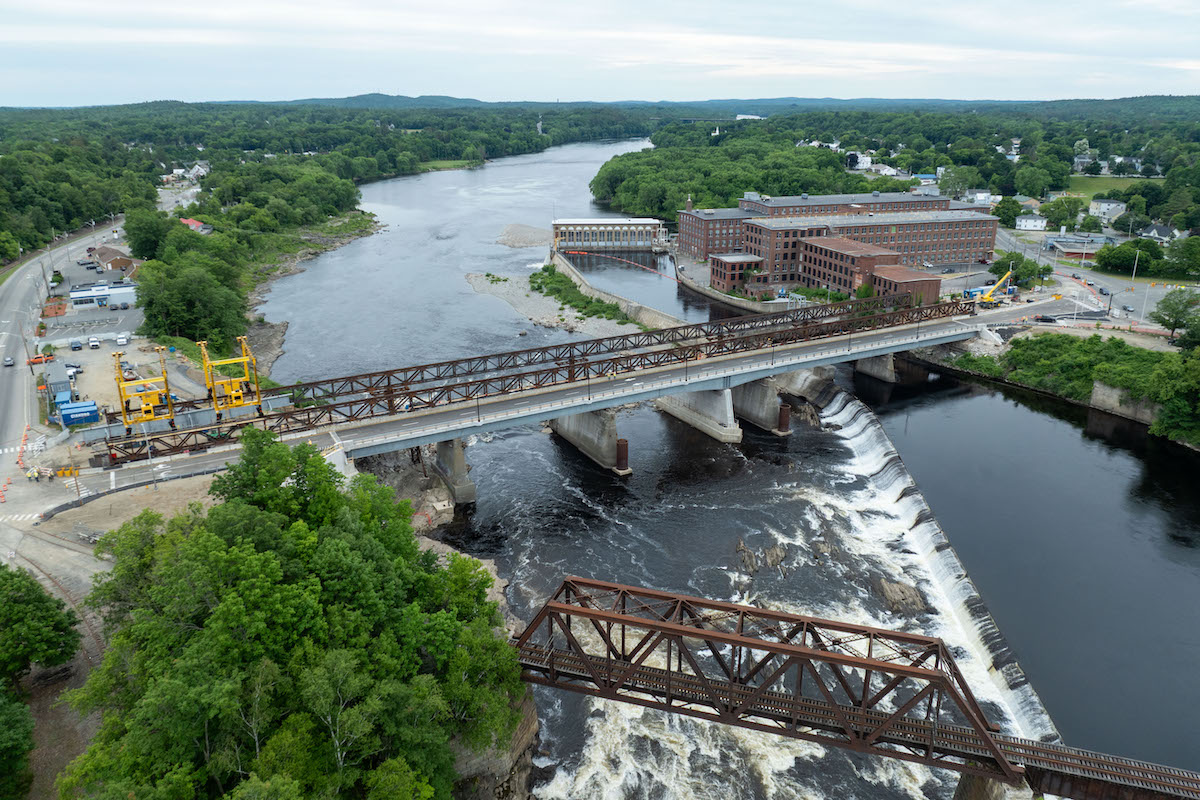“We have a capacity issue, but we also are improving the safety and functionality of the interstate,” says Keli Wylie, Alternative Project Delivery Administrator at ArDOT.
The 7-mile-long I-30 corridor was built in the late 1950s and early 1960s. The road’s shoulders did not meet current standards.
“Vehicles have changed a lot over the last 50 to 60 years,” Wylie says. About 120,000 vehicles travel on this stretch of I-30 each day.
“The new bridge will remove that obstacle,” Wylie says.

| Your local Hyundai dealer |
|---|
| Equipment East |
Currently, man-made marine dolphins offer protection to the bridge foundations. The dolphins take the impact energy and disperse it. Those round, steel structures filled with rock will be removed.
The existing bridge has three lanes in each direction. It requires replacement due to fatigue and inadequate column strength in case of a seismic event.
The new bridges also will have three travel lanes plus two collector-distributor lanes and an auxiliary lane in each direction on the bridge.
“It allows traffic to get onto the bridge and make the weaving and merging decisions before they enter the mainline,” Wylie says.
The work includes restriping the existing shoulders and lanes on eastbound I-30 in North Little Rock to create a fourth lane by narrowing the shoulder width.

| Your local Wirtgen America dealer |
|---|
| United Construction & Forestry |
| WI Clark |
In downtown Little Rock, the department is removing the interchange with I-10 and creating a split-diamond interchange, removing the existing clover leaf ramps, and separating the ramps to different city streets.
“That will open up about 16 acres of urban green space,” she says. “The city of Little Rock wants to turn that into a public park.”
Additionally, the work includes several ramp improvements at the I-630 interchange.
About $400 million in funding for the project originally came from the Connecting Arkansas Program – a voter-approved, 10-year, half-cent sales tax passed in 2012 to support highway and infrastructure projects. However, federal funds with a state match became available. The Federal Highway Administration found no significant impacts to the environment. In future phases of the project, ArDOT plans to add lanes to I-30 in North Little Rock.
ArDOT awarded the joint venture Kiewit Massman Construction the $540 million design-build contract, the first design-build delivery in the department’s history. Burns and McDonnell of Kansas City, Missouri, and HDR of Omaha, Nebraska, serve as the design partners and employee-owned Kiewit of Omaha, and Massman Construction of Overland Park, Kansas, the construction partners.

| Your local Esco Corporation dealer |
|---|
| Genalco |
“They are doing a fantastic job,” Wylie says about Kiewit Massman, citing the progress made with the bridge construction and the demolition of the interchange with I-10.
The department chose design-build due to the complex nature of the project, with the heavy traffic volume, two bridges, and system interchanges. The delivery method allowed the project to start faster.
“Design-build is a way to advance the project, to get it out and constructed quicker,” Wylie says. “This has been a great partnership between the Department of Transportation and Kiewit Massman Construction. We have a great working relationship and timely resolution of issues. This has been a great experience for us to see the benefits of alternative delivery methods and expand the program.”
Kevin Swaving, Project Manager with Kiewit, agrees, saying, “It’s all going well. It’s a different way of doing business, but they have taken to it well. We have a good team with ArDOT, our construction team and the consultants. We have meshed well.”
Construction began in September 2020. Kiewit Massman is maintaining three lanes of traffic in both directions, with some overnight closures. Two full lane closures of I-30 took place in the summer.

| Your local Volvo Construction Equipment dealer |
|---|
| Tyler Equipment |
The contractors are using GPS and total stations for machine control of the heavy equipment and drones to monitor progress.
The new bridges are supported by drilled shafts, concrete piers, and caps. There are 16 bents for each bridge. The three bents in the river are spaced farther apart for marine traffic than those on land.
Work is progressing on land and off of a series of about 14 barges and cranes, including a large Manitowoc 4600 Ringer Crane on a barge to lift the structural steel I-beams, fabricated locally in Arkansas. Crews are assembling the steel girders in pairs and lifting them onto the cap with the ringer crane. The deck will be paved with concrete.
The project is about 35 percent complete, one year since work started. Crews have already constructed the westbound drilled shafts. Wylie expects the second bridge will progress quickly. Completion of the project is scheduled for January 2025.
“We are on schedule and progressing well,” Swaving says.

| Your local Case Construction Equipment Inc dealer |
|---|
| Beauregard Equipment |
| Monroe Tractor |
Photos courtesy of Rusty Hubbard, Arkansas Department of Transportation


















